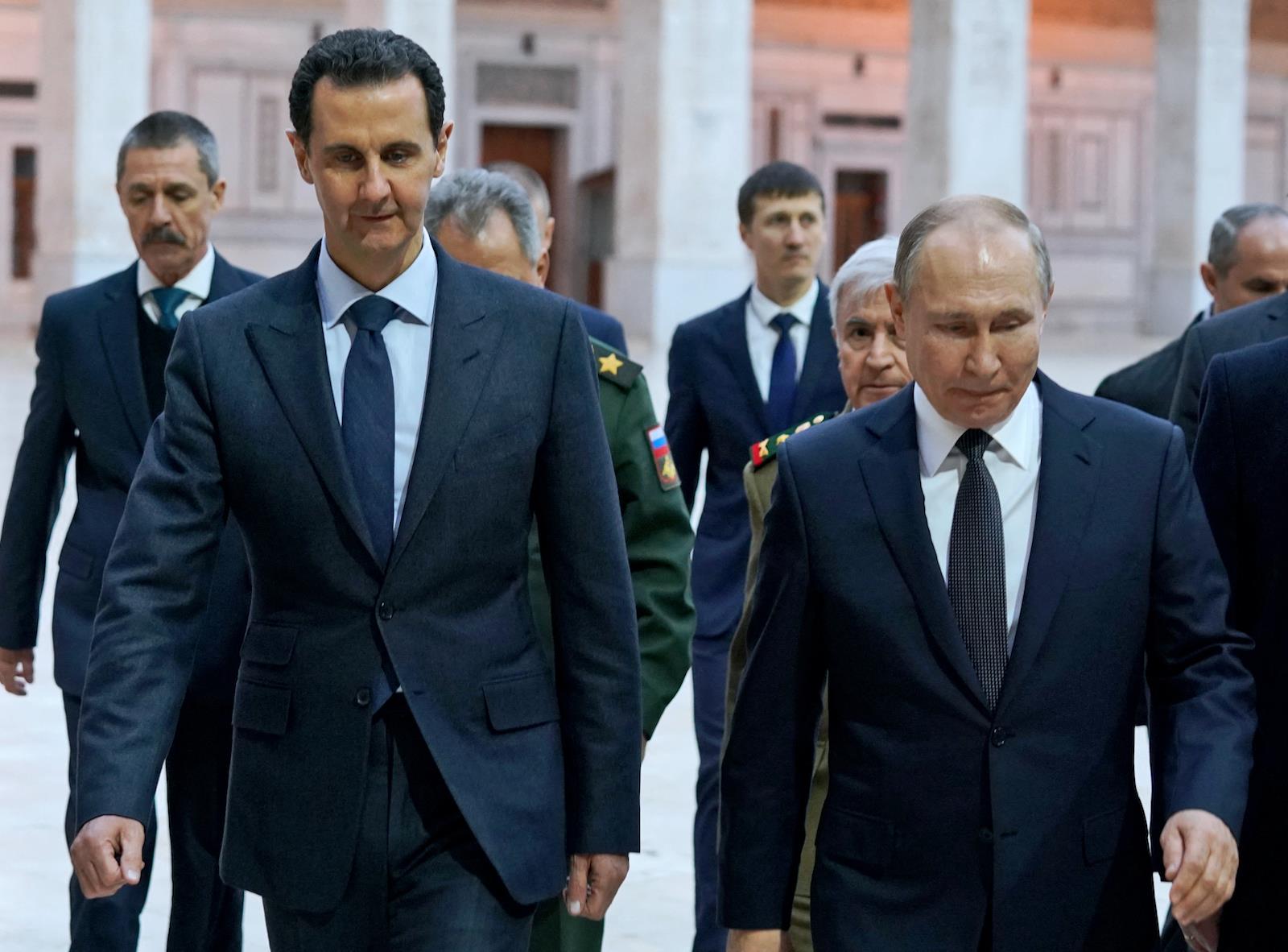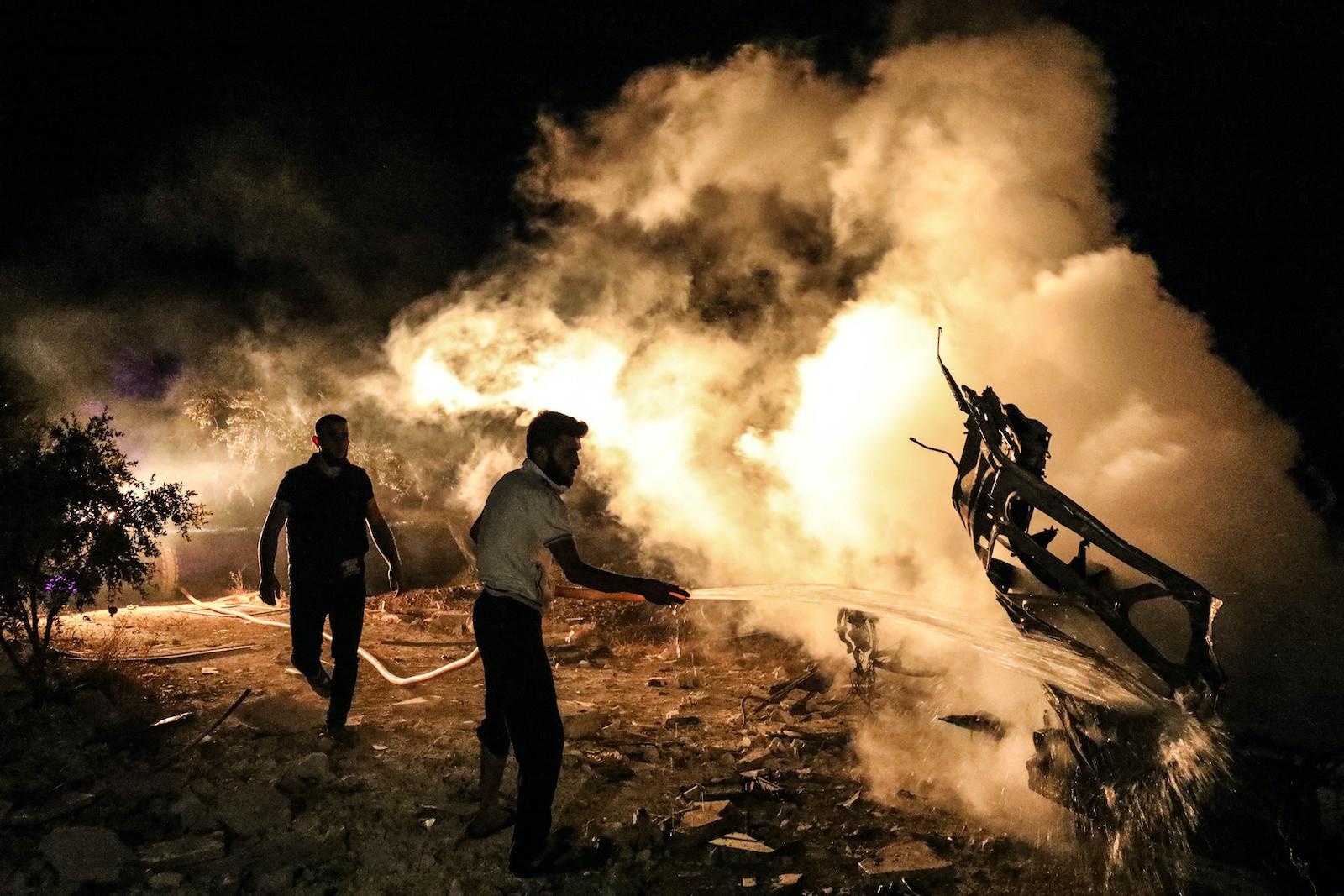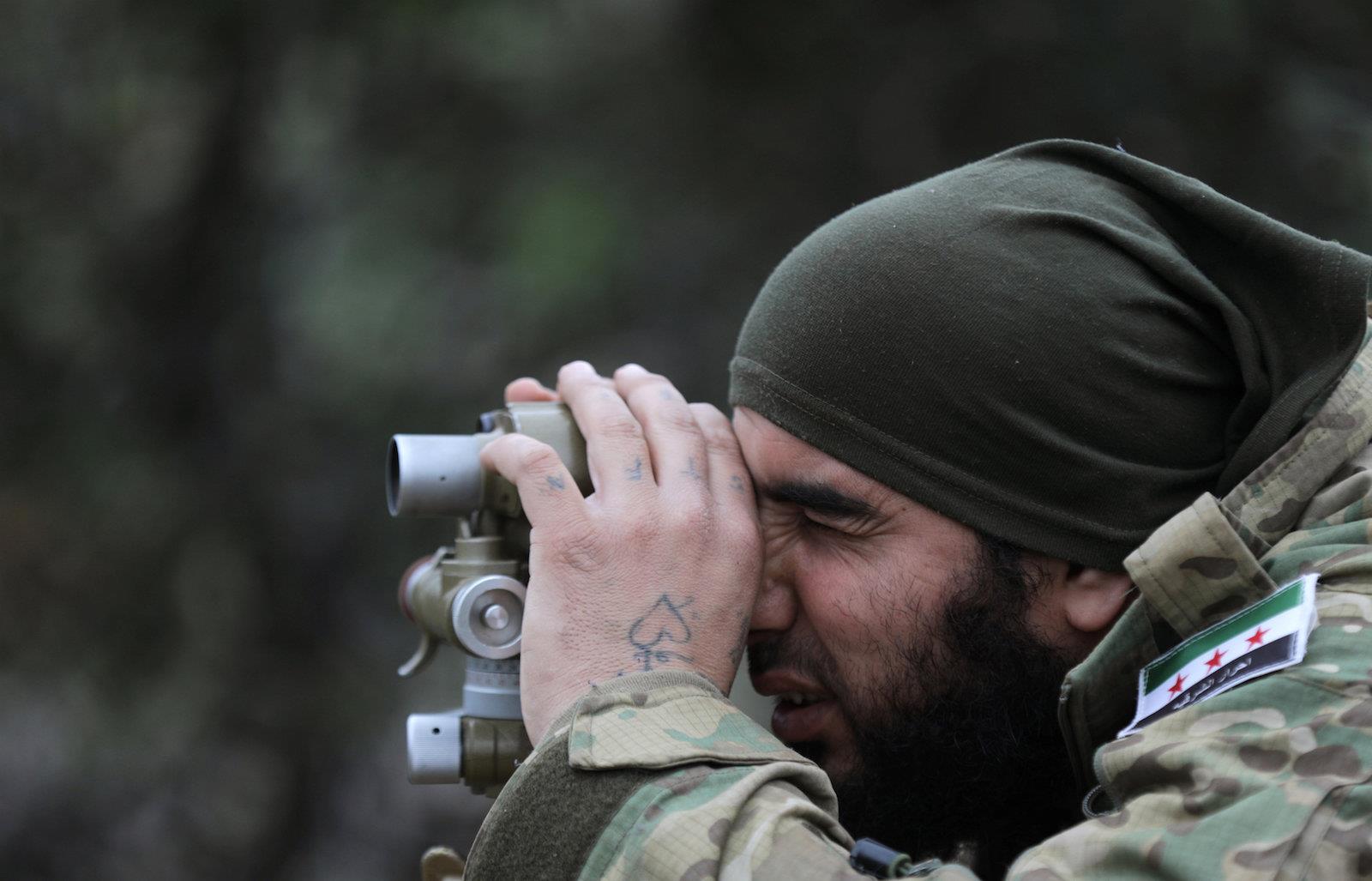(MENAFN- Asia Times) In early September, a delegation of leaders from Lebanon's Druze community met with Syrian leader Bashar Al-Assad in Damascus, a move that surprised many regional observers.
This was because the Syrian president's status – after years of brutal and bloody civil war – has been largely that of international pariah.
Yet, as the often-ostracized Al-Assad reportedly remarked to his Lebanese visitors, these days,“Many leaders of Arab and non-Arab states are communicating with us, but asking us to keep this a secret.”
Those“secret” contacts have been ratcheting up in recent days against the background of renewed conflict inside Syria.
Indeed, with Russian, Iranian and pro-Assad forces finally crushing a new uprising in the southern Syrian city of Dara'a earlier this month, the diplomatic players have been moving around the Middle Eastern checkerboard at an unusual rate.
On August 28, leaders and foreign ministers from Jordan, Egypt, Kuwait, Qatar and Iraq (plus France) met in Baghdad. Joining them were foreign ministers from Iran and Saudi Arabia – long major regional rivals.
Similarly, the UAE and Turkey also met at the summit, despite major disputes over issues ranging from Libya to the Middle Eastern status quo. Chinese representatives likewise recently visited Damascus, congratulating Al-Assad on his recent“re-election” as president.
Meanwhile, the US has now given a green light to plans to ship Egyptian natural gas to crisis-struck Lebanon via Syria – despite US sanctions prohibiting trade through Al-Assad's territory.
Then, on September 16, the Syrian leader flew to Moscow to meet with his Russian backer, President Vladimir Putin, who ironically called for a withdrawal of all“foreign forces” from the country.

Syrian President Bashar al-Assad (L) visiting the historic Ummayad Mosque with Russian President Vladimir Putin (R) in old Damascus, January 2020. Photo: AFP via SANA
That meeting came as Syrian opposition leaders warned of a potential new offensive against them by Russian and pro-Assad forces in the last remaining rebel stronghold of Idlib, in the country's northwest.
Backing those opposition forces is neighbor Turkey, which has been hostile to Al-Assad since the start of the opposition uprising back in 2011.
Given that long antagonism, one of the most surprising“secret” meetings recently making regional headlines was one widely reported in the Iraqi and Turkish media in early September.
The reports claimed that the heads of Turkish and Syrian intelligence – Hakan Fidan and Ali Mamluk, respectively – were to meet in Baghdad.
Lending credence to this, on September 7, Turkish Foreign Minister Mevlut Cavasoglu said on Turkish TV that diplomats from the two countries were indeed meeting regularly to discuss security and“anti-terrorism” measures.
“This is normal,” he said.
These remarks provoked a strong reaction from Al-Assad's foreign ministry, however, which“categorically” denied“any communication or negotiations with the Turkish regime.”
Yet, while Turkey and Syria are on opposite sides in Idlib – and while Turkish forces have occupied a swathe of northern Syria – the two sides share certain common interests.
In particular, they share concerns about another“non-Arab” party to the current conflict: the Kurds.

A view of the site after attacks carried out by the Al-Assad regime in Syria on the city center of Idlib on September 7, 2021. Photo: AFP via Anadolu Agency / Izzeddin Kasim
“Strong opposition against the formation of a Kurdish autonomous administration in Syria's northeast unites Ankara and Damascus,” Armenak Tokmajyan, a non-resident fellow with the Carnegie Middle East Center, told Asia Times.“That could be an entry point to start discussions.”
Indeed, a new phase may now be underway in Syria's long agony as the region once again reconfigures in the face of a new reality.
“What's taking place now,” Dr Arzu Yilmaz, a regional expert and visiting scholar with the University of Hamburg, told Asia Times,“is nothing less than the shaping of the post-US era in the Middle East.”
Turkey looks south
The relationship between Turkey and its southern neighbors is undoubtedly a vital part of that reshaping. Turkey has troops in both Syria and Iraq.
In the former, after a series of cross-border operations, Turkey occupies, along with its Syrian allies, a long strip of border territory. It also has a series of bases in the Irbil opposition enclave. There, it also backs the largest opposition group, the Syrian National Army (SNA).
In Iraq, Turkish troops occupy multiple military posts in the largely ethnic Kurdish north of the country, although the Turkish government insists these are not permanent.
Indeed,“Turkey is very clear that it supports the territorial and political integrity of Iraq,” Bilgay Duman, Iraq coordinator at the Ankara-based think tank ORSAM, told Asia Times.“Turkish troops are only there because Iraq can't prevent terrorist attacks from these border areas on Turkey.”
Ankara maintains that the Syrian and Iraqi Kurdish groups based in the border areas, such as the People's Protection Units (YPG) and Syrian Democratic Forces (SDF), are connected to the Kurdish Workers Party (PKK). This is Turkey's own ethnic Kurdish separatist group, designated as“terrorists” not only by Ankara, but also by the US and European Union.
Similarly, in Syria,“Turkey's three military interventions there, as well as its troops stationed in Idlib, all point at Turkey's current priorities,” says Tokmajyan:“Protect its borders from security threats and prevent any major escalation by the Al-Assad regime and Russia, which could push more Syrian refugees into its territory.”
Indeed, as already home to some 3.6 million Syrian refugees, Turkey is highly sensitive to any new influx.
For Al-Assad, too, Syrian Kurds are also largely seen through the lens of“security”, with a long history of repression of Kurdish nationalist aspirations behind the Damascus regime.

A Turkish-backed Free Syrian Army fighter looks through a pair of binoculars outside of Afrin, Syria, on February 17, 2018. Photo: Agencies
A convergence between Ankara and Damascus on“security” and“anti-terrorism”, as suggested by Cavusoglu, would therefore have some grounds.
Yet,“The distrust is huge between the sides,” adds Tokmajyan,“and if they meet on the Kurdish question, they don't on many other ones.”
Damascus, for example, strongly opposes any Turkish presence in Syria, while it sees the groups sheltering under Turkish protection in Idlib also as“terrorists.”
For the Kurds, however, news of potential meetings between Fidan and Mamluk is deeply worrying – as is the fact that the SDF's principal international backer, the US, is due to end combat operations in neighboring Iraq at the end of the year – a move likely to have an impact on the SDF and YPG in Syria, too.
“The US wants to leave with a balance of power in place that is favorable and doesn't allow less-than-friendly countries to fill the vacuum,” says Yilmaz.
With Iran and Russia the two principal nations that“less-than-friendly” defines, Turkey – and a stronger, more independent and unitary Iraq – may be Washington's preferred options.
“One of the first things US Secretary of State Antony Blinken said when he took office,” notes Yilmaz,“was to say how the US and Turkey had shared interests in Syria.”
With many more moves about the diplomatic chessboard to come – Turkish President Recep Tayyip Erdogan is due to visit Moscow after the UN General Assembly this week – Al-Assad's list of“secret” visitors may prove lengthier yet.
MENAFN20092021000159011032ID1102828780